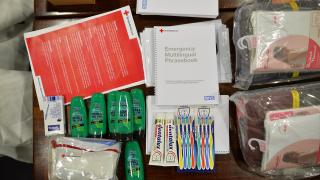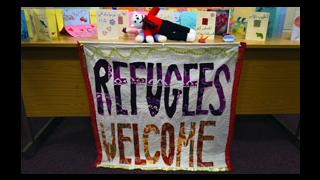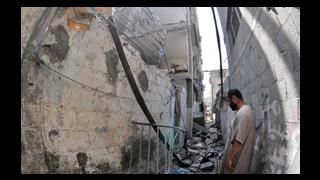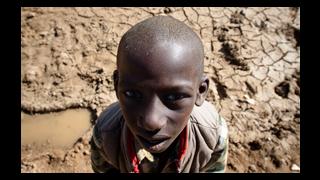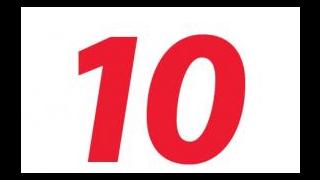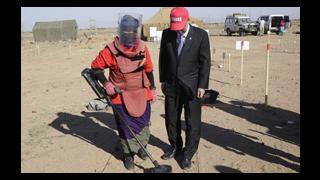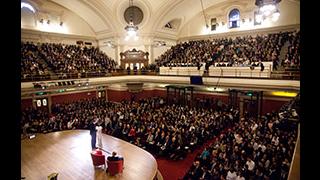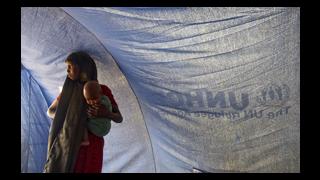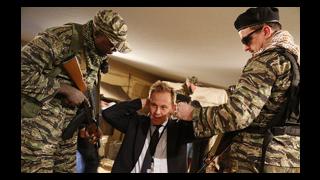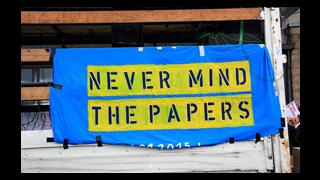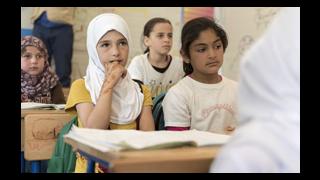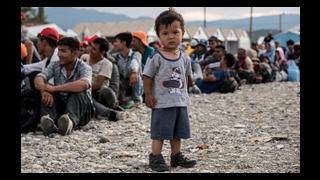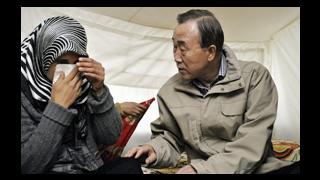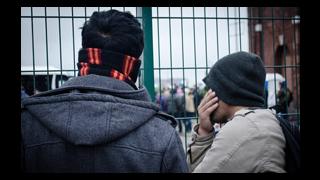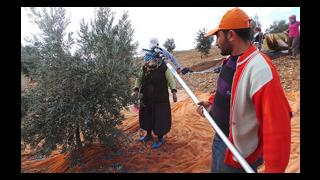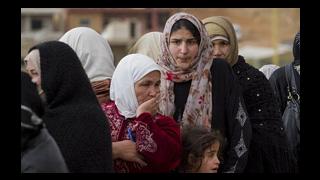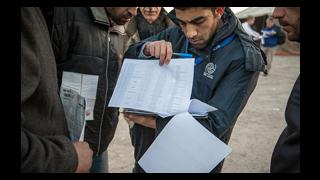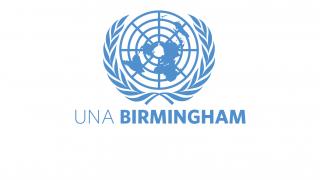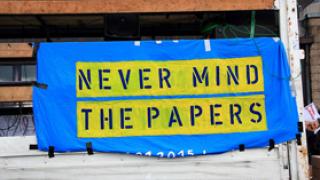
Emma Briant is a Lecturer in Journalism Studies at the University of Sheffield, co-author of Bad News for Refugees and author of Propaganda and Counterterrorism: Strategies for Global Change
Crises, such as civil war in Syria or refugees in Greece – once distant to western audiences – are now brought to us instantly on our iPhones as we sip Starbucks coffee. The future of our world depends on reporting that provides us with enough information to make informed, cogent decisions about our response to global crises – both as individuals and at the national level. The educator role places great responsibility on commercially-driven media.
Some media reporting excels at drawing our attention and resources to where it is needed. The Aylan Kurdi photograph raised awareness about the plight of Syrian refugee children, leading to the Refugees Welcome movement and a momentary softening of hostility from UK Prime Minister David Cameron. Yet in some papers, sympathy vanished as quickly as the papers sold. Sadly, in research with Glasgow Media Group, we found reporting of refugees in tabloids and broadsheets alike is often relentlessly negative in tone, routinely conflating asylum with economic migration (56/69 articles in our 2011 sample).
While some crises gain media attention, others are overlooked or represented through our domestic political frame. This domestic focus means there are sections of the British press whose idea of a humanitarian crisis is an inch of snow in winter, a 5p charge for carrier bags or the plight of British holidaymakers in Kos, whose sunbathing has been spoiled by the sight of starving, smelly refugees. Journalism is a business, so engendering empathy with the victims of a crisis becomes trickier when it conflicts with domestic concerns. People want to know how this impacts us. A starving Syrian child in Aleppo is one thing – the prospect of a longer waiting list for an NHS operation in Stevenage because that refugee child might be treated before your granny, brings it closer to home.
And this domestic angle is magnified by propaganda from interest groups and politicians: 75 statements across 69 articles in our 2011 sample came from politicians, leading to emphasis on narratives such as “immigration control”. Government officials further stress all British conduct abroad as having philanthropic, noble motives and downplay alleged human rights abuses by our allies. This leads to a failure to acknowledge our national responsibility for the victims.
Furthermore, refugees are used as strategic pawns to further political attacks on the EU, the European Convention on Human Rights and the 1997 Human Rights Act, despite the fact that 80 per cent of refugees are being supported in developing countries. Now, our Government's new “anti-advocacy clause” may further restrict charities from campaigning for change. In contrast, right-wing think-tanks such as Migration Watch often have well-funded spin machines, which provide statistics and explanations that are partisan, misleading and inaccurate to a hungry media. This helps inflate the numbers arriving and the 'burden' posed, and reinforces the myth that refugees are financially motivated or get privileged access to British services.
Language and images used in the media further the 'othering' and dehumanisation of refugees. As Britain's tabloid press hijacked the November terrorist attacks in Paris to push their anti-immigration agenda, some of their rhetoric and images against refugees, at its worst, mirrored Nazi propaganda, with one Daily Mail cartoon portraying an image of rats, scurrying into Europe.
More sympathetic narratives do exist, but even recently as the mainstream media described how “clashes broke out” in “the Jungle” between migrants and authorities, this ‘neutral’ terminology misrepresents the crisis - implying the two have equal agency. Even as the authorities roll in with bulldozers and tear gas to destroy homes.
Challenging the political and economic decisions that drive forced migration raises commercial pressures. The audience tends to select the news outlet that fits their existing perspective. And funds for investigative reporting – consumed by the few – dwindle further. In addition to demanding change in our broken media, we must find ways to support and promote the good journalism out there. For example, the wonderful Two Billion Miles interactive story from Channel 4 allows us to 'experience' a refugee's journey, following where different decisions might take us.
Negative and inaccurate reporting prevents the perhaps unpopular policy choices that may be necessary to address the inequalities in Europe and beyond that perpetuate violence and make refugees vulnerable to exploitation. The media can help us to understand and solve these issues; it can help us to act with humanity. Or it can fan the flames of bigotry and intolerance, and sell papers by encouraging us to turn our back on suffering. We need it to do the former. Far too often, it does the latter.
Photo: 'Refugees Welcome means Equal Rights for all' - a demonstration in Hamburg on 14 November 2015, following the Paris terror attack. Credit: Rasande Tyskar

